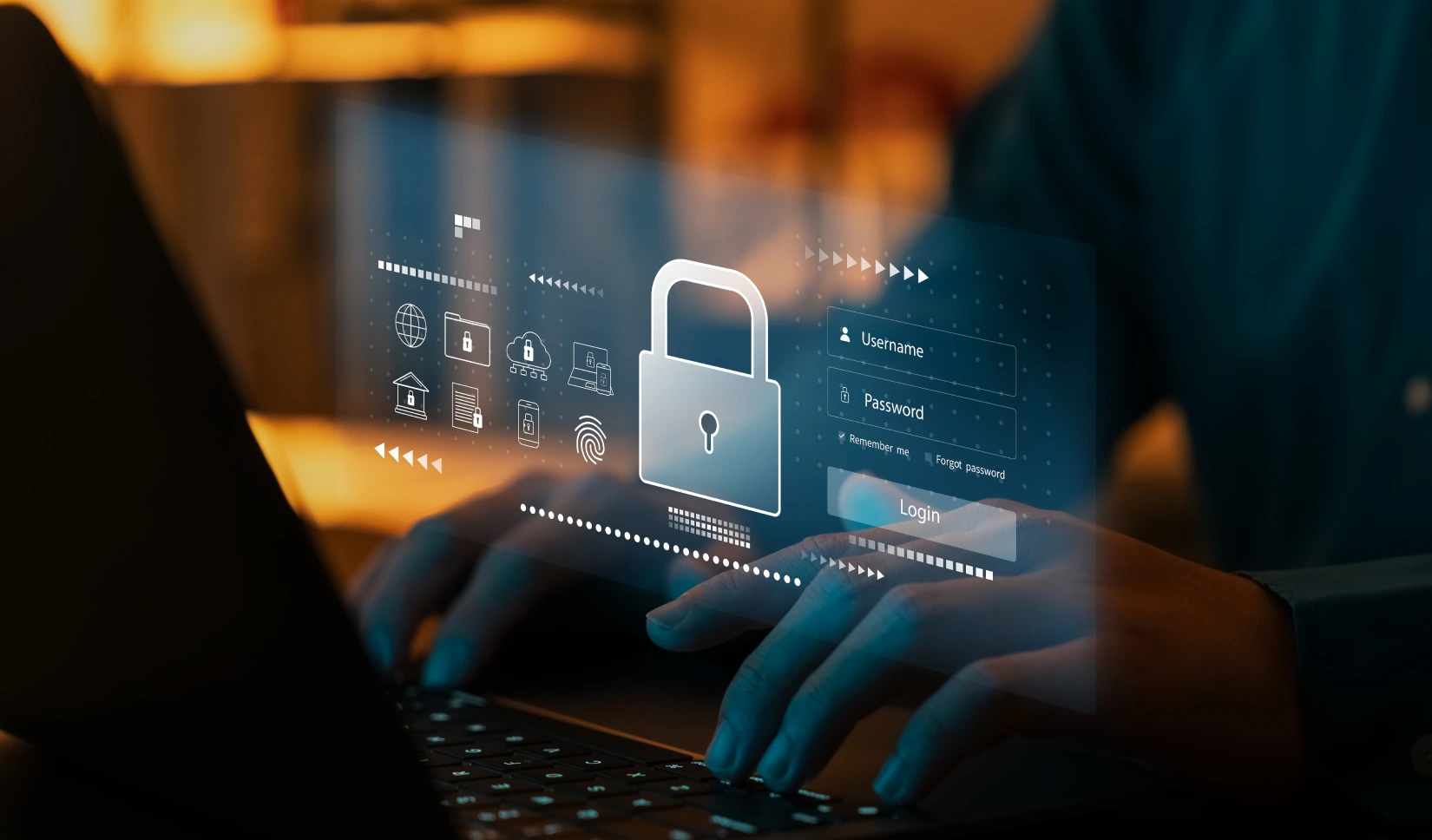Ransomware is targeting healthcare and beyond–stronger cybersecurity is the best defense
The healthcare industry as well as companies that work with insurance and healthcare facilities (such as meal delivery service providers), are being hit more and more by ransomware attacks, costing victims $21.9 billion in the past six years. At LiveWell with Traditions, we have robust cybersecurity protocols in place to protect sensitive information against bad actors, malware, and data breaches.
“Ransomware attacks continue to pose a significant threat, costing organizations millions each year,” said Lisa Damore, senior vice president at LiveWell with Traditions. “As cybercriminals become more sophisticated, companies must strengthen their defenses—not just for themselves, but for the partners and communities they serve.”
What is ransomware?
Ransomware takes cybercrime to a highly disruptive—and sometimes ruinous—level of network penetration. It is a malicious type of software (“malware”) that is planted on a computer or system that prevents users from accessing devices and the data stored there. This is usually done by encrypting the files secretly and the result of email phishing scams or social engineering activities. Clicking on the malicious link infects the device and may spread to the entire network.
Then, the cybercriminals demand that the company pay a ransom in exchange for decryption and renewed access to the files. Ransomware attacks have affected cities, educational institutions, government agencies, financial institutions, and myriad corporations.
The cost of ransomware on healthcare
Hospitals and health systems, as well as health insurance companies, are prime ransomware targets because of the massive amount of sensitive data they collect and store about patients and plan members.
“Protecting personal information is a top priority in the work we do,” said Lisa. “We encourage our partners across the healthcare industry to regularly assess their cybersecurity measures to ensure sensitive data stays secure and out of the hands of cybercriminals.”
According to the State of Ransomware in Healthcare 2024 report from Sophos (released in September 2024), which details the effects of ransomware on this sector:
- Of the 402 healthcare organizations surveyed, 67% had experienced a ransomware attack in the past 12 months, up from 60% the previous year.
- The healthcare industry has the second-highest attack rate globally.
- An average of 58% of healthcare organizations’ devices were affected by a ransomware attack, which Sophos attributes to “the widespread use of legacy technology and infrastructure controls than in other sectors, which makes it harder to secure devices, prevent lateral movement, and stop attacks from spreading.”
More details of the Sophos report are in this HIPAA Journal article. Another HIPAA Journal piece reported there were 181 confirmed ransomware attacks on healthcare providers in 2024 involving 25.6 million healthcare records.
Nationwide ramifications of ransomware on the healthcare industry
Becker’s Health IT shared the “ten most consequential” of 2024 data breaches and ransomware attacks that resulted in significant financial and operational costs.
Change Healthcare, a UnitedHealth Group claims processing subsidiary, took the #1 slot with the worst healthcare-related ransomware attack of 2024. It affected an estimated 100 million Americans and had a total corporate impact of $3.09 billion, including $2.2 billion in direct response costs and $867 million in business disruptions.
The list’s other hospitals, hospital systems, and a major health plan suffered enormous patient record breaches and disruptions in care delivery and operations, lost access to electronic health records, and more. These cyberattacks affected tens of millions of patient records, created communications crises with current and former members, and caused an IT system to be taken offline.
Ransomware hits food service and meal delivery providers
The food service industry is also suffering ransomware attacks. Last March, Panera Bread restaurants, teams, and customers endured a week-long IT outage of its phone lines, point-of-sale systems, mobile app, and company website. Closer to (figurative) home for us, a ransomware attack hit the parent company of another nationwide meal delivery provider last February. The cybercriminals stole personal and protected health information of more than 1.2 million Medicare and Medicaid members and private pay customers who receive medically tailored meals at their homes. That information included names, birth dates, insurance IDs, and medical and financial information.
How LiveWell with Traditions–a nationwide provider of medically tailored meals– protects IT systems and sensitive data
Working at the intersection of medical care and high-quality nutrition (Food is Medicine), LiveWell with Traditions partners with Medicare Advantage organizations that offer medically tailored meals as a supplemental member benefit for post-acute discharge periods or people with chronic health conditions.
LiveWell has always prioritized strong cybersecurity measures to protect sensitive data. As cyber threats continue to evolve, we remain committed to maintaining the highest standards to prevent breaches and ransomware attacks.
“We are proud of the stringent measures and proprietary technology we have in place to protect our network and our healthcare partners,” said Lisa.
LiveWell with Traditions prioritizes cybersecurity at every level, ensuring sensitive data is protected through industry-leading security measures. Unlike many meal vendors, LiveWell operates on a highly secure cloud infrastructure—the same level of security used by the CIA, FBI, and other U.S. government agencies—to meet the rigorous compliance standards required in healthcare.
To further safeguard data, LiveWell implements multiple layers of protection, including advanced encryption, strict access controls, and continuous security monitoring. Personal health information is encrypted at all stages, and our systems follow the principle of least privilege, ensuring that only essential personnel have access to necessary data. Additionally, our infrastructure is consistently updated to mitigate emerging cyber threats.
By maintaining a proactive, defense-first approach to cybersecurity, LiveWell provides partners with peace of mind, knowing their data is safeguarded against breaches and ransomware attacks.
LiveWell with Traditions: A Trusted Partner in Home-Delivered Meals
If you are not yet partnering with LiveWell, we’d love to explore how our meal program can enhance member benefits while reducing costs. Research shows that medically tailored meals can reduce healthcare expenses by 16% and prevent hospitalizations and readmissions, saving health insurers $13.6 billion in potential costs.
With over 50 years of experience in senior nutrition and a 99.7% on-time delivery rate, LiveWell is a trusted and highly reliable partner for MAOs. Our expertly crafted meals support older adults, Medicare beneficiaries, and those dual-qualified for Medicaid and Medicare.
Beyond exceptional meal delivery, LiveWell’s proprietary technologies ensure seamless program integration, enhance member engagement, and prioritize security at every level.For more information about our cybersecurity protocols or medically tailored meals, contact LiveWell with Traditions.



